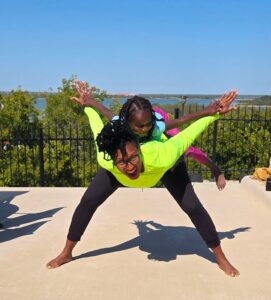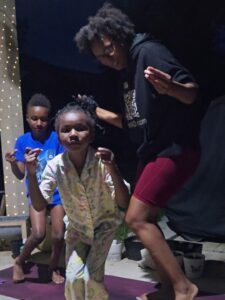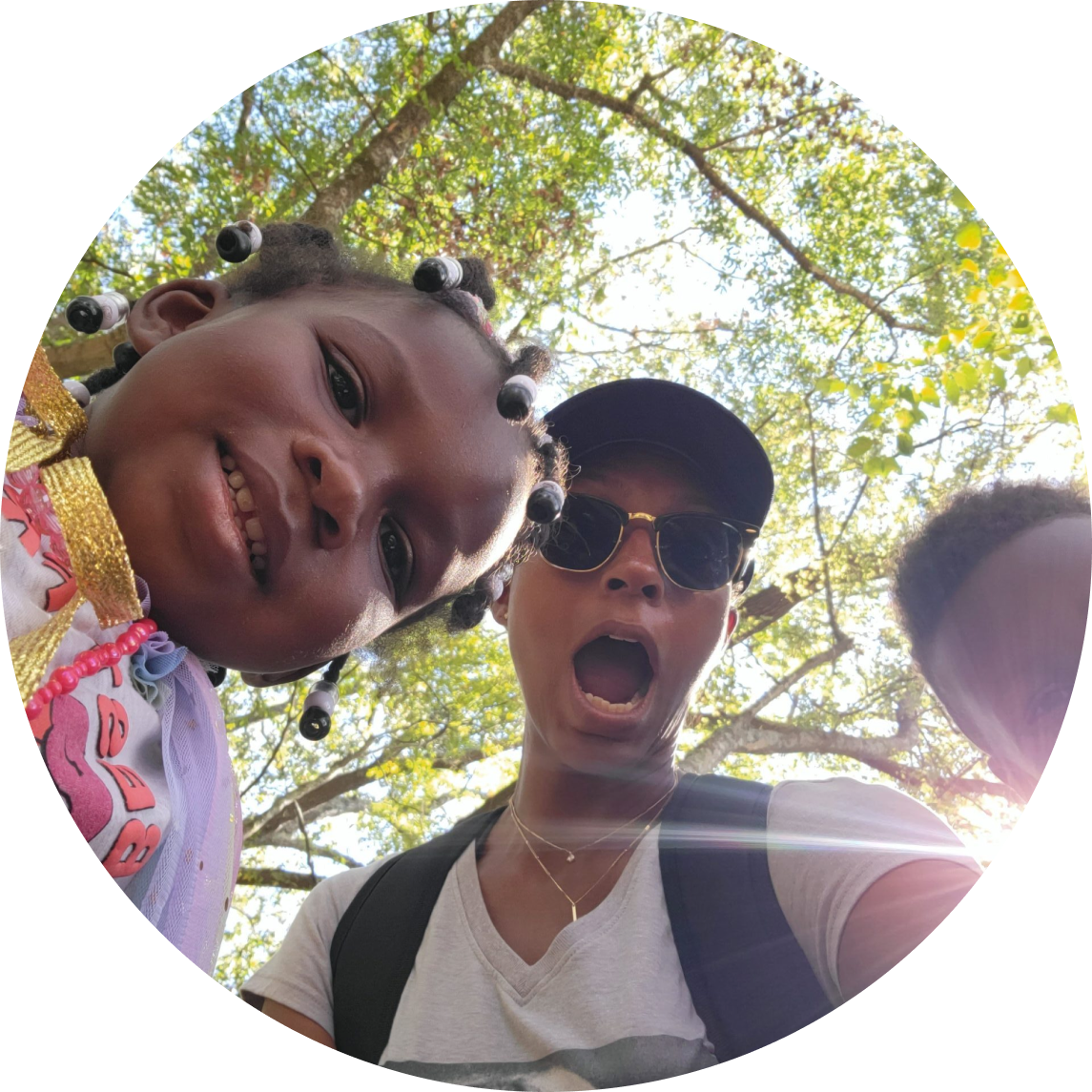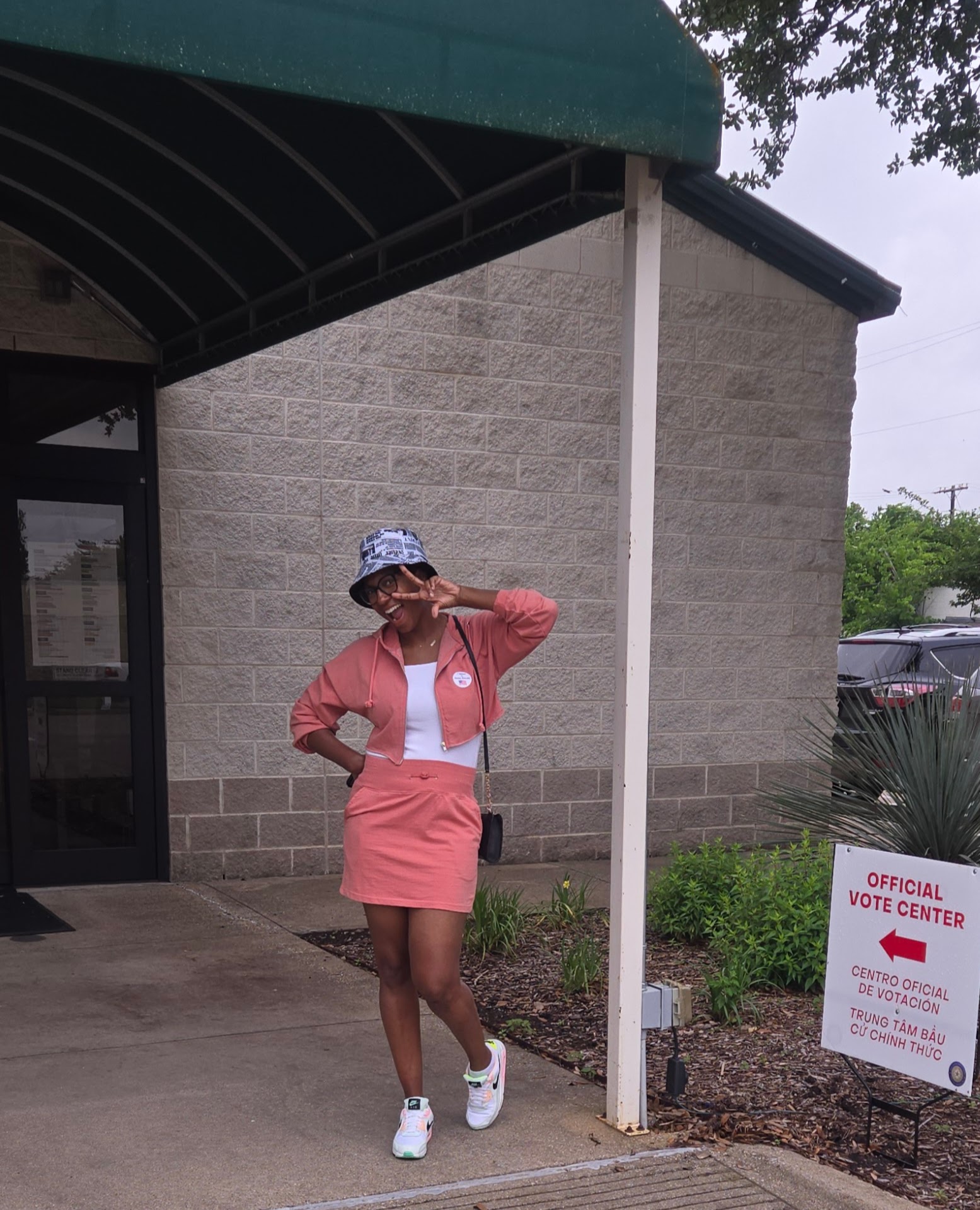This past Monday, April 7th, was World Health Day—a time to raise awareness and spark action for health equity and access across the globe.

This year’s theme, “Healthy Beginnings, Hopeful Futures,” hits close to home for me—not just because of my pharmacist background, but as a Black woman, mother, and woman on a healing journey.
While global change can feel big and far away, I believe it starts with what we teach, model, and nurture within our own families. Maternal and newborn health—especially in the Black community—isn’t just a hospital or policy issue. It’s a home issue. And that’s why family health matters.

Why Representation in Maternal Care Matters
For both of my pregnancies, I was considered “geriatric” (because I was over 35). But I was also carrying the weight of knowing how often Black women’s concerns are dismissed. Serena Williams’ story haunted me. If she wasn’t being heard, what chance did I have?
Although my first OB-GYN—a Hispanic male—was excellent, I intentionally chose a Black woman for my second birth. Being older the second time around and thus the pregnancy carrying more potential risk, I needed to feel safe. I needed someone who saw me, not just my chart. That made all the difference.
How Community Support Changes Outcomes
After I gave birth to my second child, the sisters at our church brought my husband, son, and me food for nearly two weeks. It was unexpected, and deeply necessary. I didn’t know how much I’d need it until it came. I didn’t have to ask—they just showed up.
That kind of support is a reminder: ‘We do life together;‘ we were never meant to do this alone.
If you know someone who just had a baby, organize a meal train, offer a grocery run, or simply show up. Healing the Black family requires care in action. Supporting family health means supporting the village that surrounds it.

Feeding with Love, Without Judgement
I was blessed to be able to breastfeed both of my children for about a year. The hospital and doctor’s office offered plenty of information and support, plus I had a supportive workplace which made the choice possible. And while I believe breastfeeding—when accessible—is one of the healthiest options for newborns, I also know it’s not always feasible.
Breastfeeding is a commitment. A labor of love that can’t be done without support. But formula is not the enemy. There are alternatives, and the best choice is always the one that prioritizes the wellbeing of both baby and parent. No judgement.

Movement, Mindfulness, and Modeling Health
For those that have been reading the blog for any length of time know, I practice yoga and Taekwondo (the latter with my children). We go on walks, play outside, and talk about what it means to care for our bodies and minds. And while I’m not a certified yoga teacher, I’m an advocate of the practice because I’ve seen how it regulates our energy, grounds our emotions, and creates peace in our home.
Family health starts with presence. With breath. With being aware of our own needs, and showing our children how to notice theirs.
From Home to Community: Take One Step
Here are five ways you and your family can support maternal and newborn health:
- Start the Conversation. Ask a mom you know how she’s really doing.
- Donate Essentials. Diapers, formula, meal gift card. It all adds up.
- Volunteer Together. Local birthing centers and shelters always need help.
- Move as a Family. Dance parties, yoga, Taekwondo—make it fun and healing.
- Speak Up. Advocate for policies that support Black maternal health and family wellness.
This year’s World Health Day theme is “Healthy Beginnings, Hopeful Futures.” Let’s honor that by making sure those beginnings are rooted in love, respect, and community. Because family health doesn’t start in a hospital…it starts at home.
BTW: “When the roots are deep, there is no reason to fear the wind.”—African Proverb
What does family health look like for you? How have you created or received a “healthy beginning” in your parenting journey? I’d love to hear your stories, reflections, or even your hopes for the future. Let’s start a conversation in the comments—because when we share, we plant seeds for healing, connection, and collective growth.
Other Post You May Enjoy:
The State of Black Love: Marriage, Growth, and Family Bonds
Family Fitness Routines: Fun and Heart Healthy
Reclaiming Rest: Why Black Women Deserve to Prioritize Peace
Discover more from Life In AD
Subscribe to get the latest posts sent to your email.








